


As the descendant of German Americans who immigrated to the Midwest in the late 1800s, I have benefited from generations of hard work and their pursuit of the American dream. As the daughter of amazingly open-minded, progressive parents, I was raised to be “color blind.” Here’s why a chance encounter with legendary NFL linebacker Bobby Bell inspired me to learn more about Black history.
To help offset the costs of running SilverSightseer.com, you’ll find affiliate links lightly sprinkled throughout the site. If you choose to make a purchase via one of these links, there’s no additional cost to you, but I’ll earn a teeny tiny commission. You can read all of the legal blah blah blah (as my little niece says) on the full disclosure page.
Perhaps it’s because they came of age during the late 1960s in a small, close-knit community of predominantly German immigrants, but my parents always encouraged us to never use skin color to describe a person. Think about it. If you’re a White American, you never describe someone by saying they’re White. So why do you need skin color to describe your fellow non-White Americans? You don’t.
So I’d describe the man standing in front of me in line as tall, handsome, and 70-something. Personality oozed out of him, from the broad smile on his face to the way he seemed to know no strangers. It was Saturday at Costco. That statement alone conjures up images of packed aisles and long check-out lines. But this was the Saturday between Christmas and New Year’s Eve, so it was especially insane.
As I unloaded my overflowing cart onto the packed, slow-moving conveyor belt in front of me, the man turned to me and made a joke about being unable to find the plastic partition separating our orders. He suggested that he may end up purchasing some things for me because the vegetables, chocolate, and almonds packed onto the slow moving belt made it hard to see where his order ended and mine started. We chatted back and forth as the checker processed his order and I continued to unload my cart.
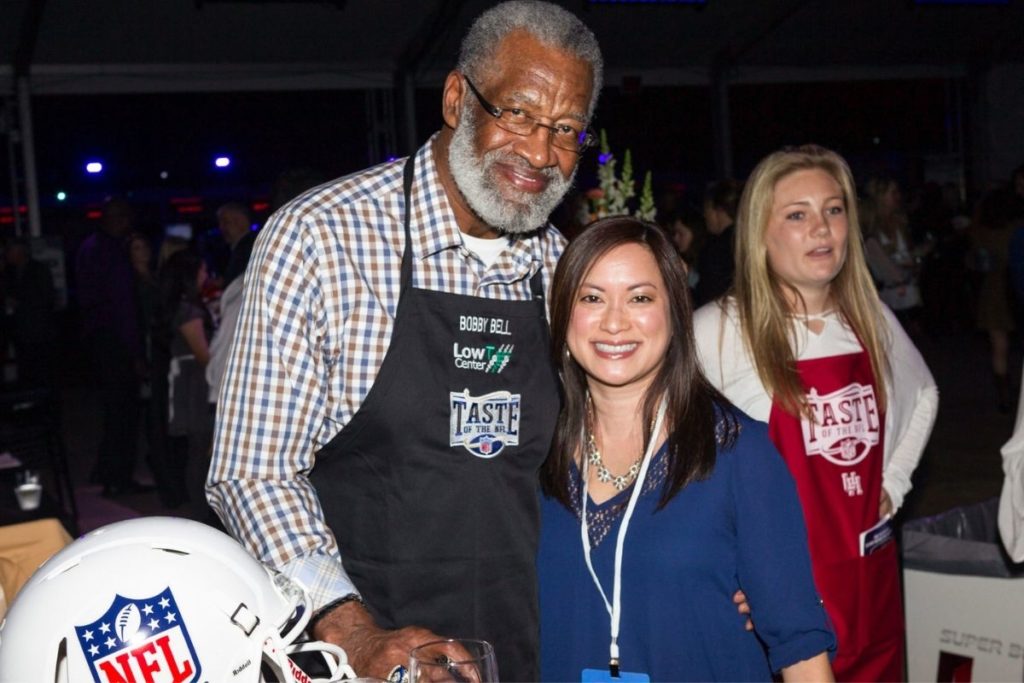
Our local NFL football team, the Kansas City Chiefs, was enjoying a phenomenal season with whispers — no, more like active talk — of potentially making it all the way to the Super Bowl. So I didn’t think twice about the man’s red and gold jacket and knit hat emblazoned with the team’s logo.
But wait, that ring. As he used his right hand to once again try to gesture to the plastic separator between our orders, I caught a quick glimpse of a massive gold ring. Was that a Super Bowl ring? I tried to quietly catch my daughter’s eye to have her take a look, but she was intermittently engrossed in a Snapchat conversation on her phone and helping unload our cart as space became available.
As the man handed his credit card to the cashier, he turned to me. “Since you won’t let me buy any of your groceries, let me give you this.” He reached into his pocket and pulled out a small tube. “This is me.”
I didn’t have my glasses on, so while I could make out that it was a tube of chapstick, I couldn’t see any detail. “Thank you!” I replied, “I hope you have a fantastic New Year’s Eve, and I wish you all the best in 2019.” With that, the man gave me one last dazzling smile and headed for the door. The check out clerk stopped processing my order for a moment, and I turned and looked at him, confused by the hold up. He wore an expression of disbelief and disappointment on his face.
“Do you know who that was?” he asked.
“I have no idea. He was nice to me, so I was nice to him. But, um, was that a Super Bowl ring?”
The checker’s facial expression dipped further toward disbelief as he said, “That was Bobby Bell.”
After I replied, “I’m sorry, but I have no idea who that is,” the checker shook his head at me disapprovingly and finished processing my order without another word.
Out in the parking lot, while I shoveled our purchases into the back of the car, Charlotte was busy Googling Bobby Bell.
“It says here that he’s a member of the Pro Football Hall of Fame, the College Football Hall of Fame, and yeah, that WAS a Super Bowl ring. Oh, and one site is calling him ‘possibly the most gifted linebacker in NFL history’ so I’m going to go ahead and call him a big deal.”
But as I read more about Bobby Bell, it wasn’t his accomplishments on the football field that impressed me most. It was how this gentle giant with the dazzling smile overcame segregation in the south, discrimination in Kansas City, and honored a promise to his father even if it took him 50 years.
View this post on InstagramA post shared by Sage Scott (@sagescott.kc) on
Bobby Bell, A Legendary Black Athlete in the Segregated South
Born and raised in Shelby, North Carolina, a textile town about 40 miles west of Charlotte, Bobby Lee Bell was named for Robert E. Lee. As ironic as that may sound, naming a Black baby born in 1940 after the commander of the Confederate States Army, Bobby Bell told a reporter in 2014 that his father wanted him “to represent something different” via that name. And boy, did he ever!
In a segregated town where Black families didn’t have a recreational park until Bell was 13, Bobby developed his natural athletic talent by learning to swim, serving as a lifeguard, and playing baseball. Although he was recruited by the Chicago White Sox at the age of 16, Bell’s father insisted that he finish high school first. And so, that following fall, he added football to his athletic resume, playing quarterback.
Not surprisingly, Bell was a talented football player and caught the eye of several college recruiters including the University of North Carolina. However, because the UNC team was still segregated, Bell reached out to University of Minnesota coach Murray Warmath who was a pioneer in recruiting talented Black athletes to its Minneapolis-based program. Bell switched from quarterback to defensive line and helped the Golden Gophers win the 1960 national championship and the 1962 Rose Bowl.
Hailed as a hero back home in Shelby, Bell saw small signs of change in North Carolina. When the town threw him a parade, band students from the Black and White high schools marched together. However, Bell still couldn’t walk through the front door of the town’s ice cream parlor and order himself a cone.
Overcoming Discrimination in Kansas City
With a semester of classes to complete before graduation, Bell left the University of Minnesota to join the Kansas City Chiefs. While an NFL contract today conjures up minimum salaries of nearly $500,000 that wasn’t the case back in 1963, especially if you were Black. To supplement his meager salary with the Chiefs, Bell also worked full-time at General Motors plant, using his limited vacation time to attend pre-season training.
But Bell didn’t just face discrimination in the NFL. He and his family were surrounded by it in Kansas City. Trying to purchase a home, they visited more than 200 homes in the metro area, each one “selling” right before the Bell family expressed interest in making an offer on the house.
In his article, “My Hero,” Chiefs Insider Nick Athan describes growing up with Bobby Bell’s son in Prairie Village, Kansas. The boys attended elementary school together in the 1970s in Kansas, the Free State, not in the 1940s in Shelby, North Carolina. And that’s what sickens me most about Athan’s stories of discrimination in Kansas City. When Bobby Bell, Jr. asked for a glass of water, neighbors asked the boy to pay them a quarter to replace the glass they’d throw in the trash after the child drank from it. And it took legendary Chiefs coach, Hank Stram, threatening the local grocery store with lawsuits and bad press before the Bell family was allowed to shop there.
I didn’t move to Kansas City until decades later, but imagining the Bell family’s experience, especially as a mother, angers me deeply. What if my neighbors discriminated against single mothers and I had to look at 200 homes to find a place for my family to live? What if my community felt that blonde girls were second-class citizens and charged my daughters for replacing the drinking glasses they used? What if we were barred from the local grocery store because our skin was the wrong color? I don’t think I’d be able to rise above that sort of hatred the way Bobby Bell and his family did.
Bobby Bell, a College Graduate
If rising above life in the segregated south, dealing with discrimination in Kansas City, and helping the Kansas City Chiefs win their first Super Bowl isn’t enough, there’s yet another reason I admire Bobby Bell. In 2015, roughly 50 years after leaving the University of Minnesota to play for the Chiefs, Bell earned his college degree.
I can’t imagine what it must have been like to return to a college environment in his 70s, but Bobby Bell completed the three college courses he needed to earn his bachelor’s degree with gusto. For one of his social science classes, Bell interviewed a Kansas City-based immigration lawyer representing undocumented residents. Although he’d been a US citizen his whole life, Bell saw many parallels between his life and theirs, both pining for an opportunity to work hard, be treated like everyone else, and contribute to the American dream.
If Only I’d Known This About Bobby Bell
I wish I’d known all of this about Bobby Bell before our chance encounter at Costco that busy Saturday. Although, knowingly standing next to such an inspirational legend might have caused me to be tongue-tied or act all crazy fan girl. Part of what made our encounter special was that I had no idea who he was, and he seemed to enjoy that anonymity with me.
I’ll probably never run into Bobby Bell again, but if I get the chance, I’d want to give him a big hug and tell him how much I admire all that he’s accomplished, especially off of the football field. I’d want him to know that I am in awe of the brave, dignified way he dealt with absolutely unacceptable treatment the majority of his life simply because his skin is darker than mine. And I’d want him to know that he inspired me to continue to visit sites that add to the largely White European male version of American history taught in school, because every American should understand and appreciate the role that Black Americans played in shaping the country we love.
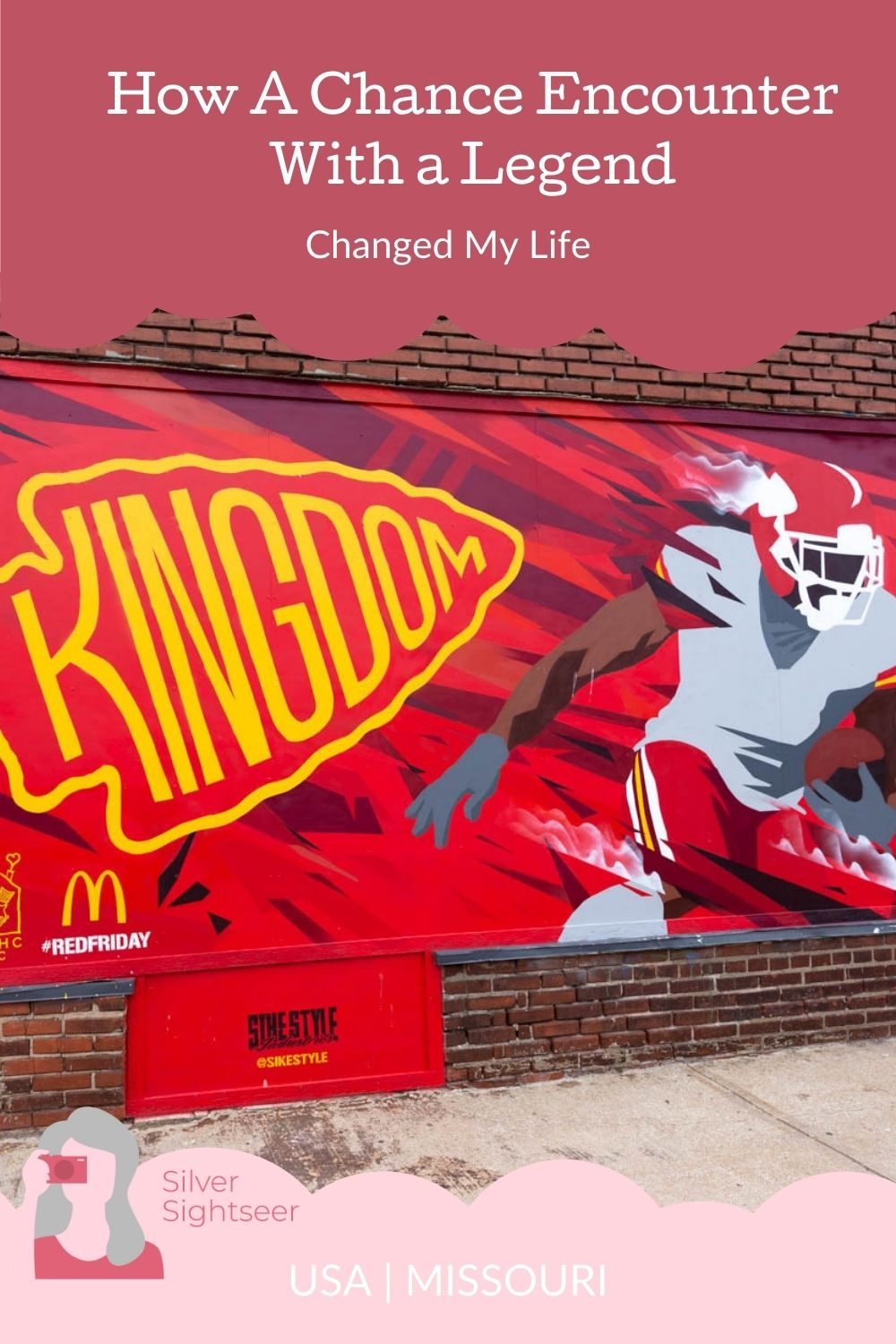
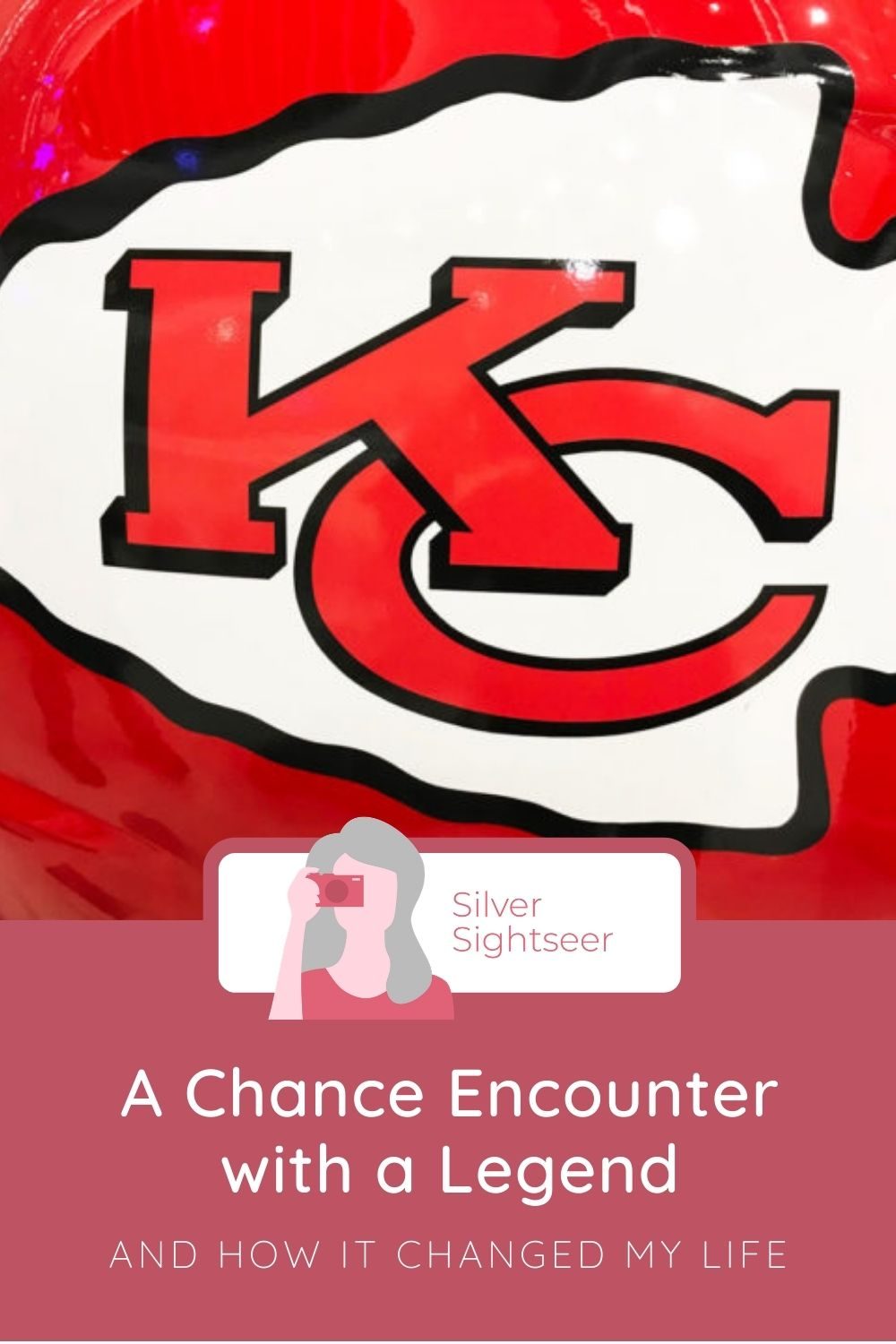
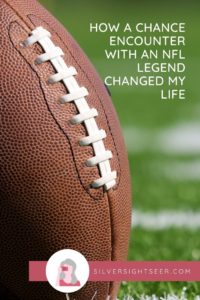
You Might Also Enjoy
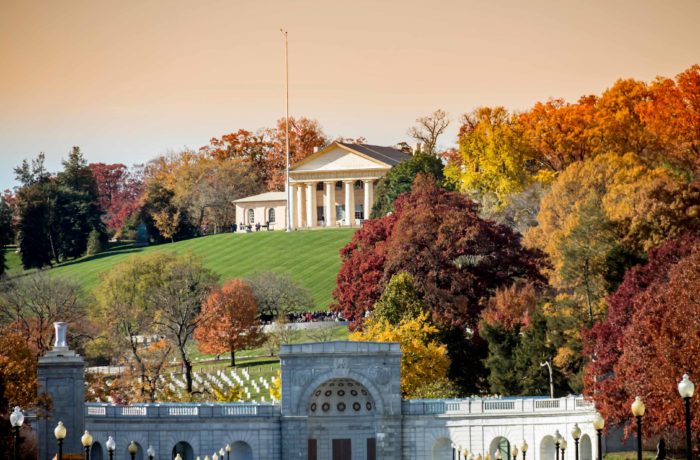
Arlington House. How Robert E. Lee’s home became a national cemetery.

Sunflowers. Fascinating facts about these tall yellow blooms.

Midwestern Stereotypes. Myths that people in “flyover states” are sick of hearing.
Thank you for sharing!

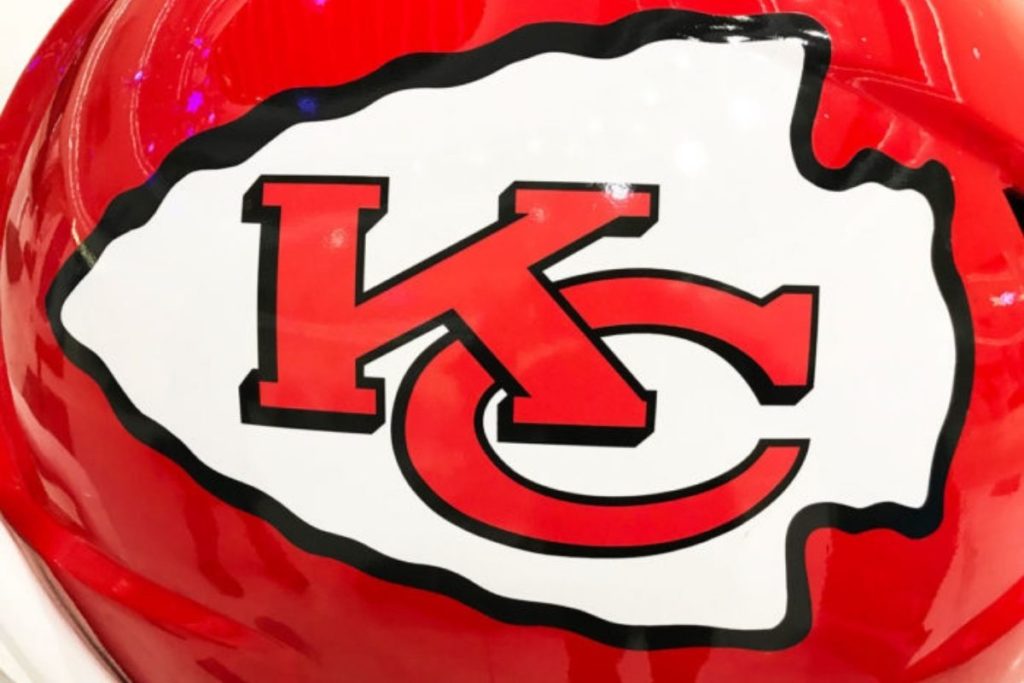

It’s really good to see the increase in interest in black history from those who are not people of colour. And also good to seed more widely a growning understanding of what racism is (and isn’t), the ways in which our society is systemically an institutionally racist, and realising how much of society today is shaped by historically racist periods of our past. I loved reading about your encounter with Bobby Bell and then about his personal history. I wrote a short personal passage about this claim people make to be colour blind and how, as a person of colour, I don’t want people not to see my colour, I want them to see it, to understand it’s a part of who I am and how I experience the world, but to not have it impact the way they treat me and interact with me!
My very first trip to the US was to the Deep South – and I was pretty shocked to find still so much segregation there. It was as if people were separated by a glass wall. When I later addressed the issue back home, everybody said, yes, but that’s only there. A couple of weeks later, LA was in flames because of the Rodney King incident – obviously, race issues were not only in the Deep South.
For a long time, I had the impression that racial injustice was a ‘don’t touch it’-subject in the US. People felt clearly uncomfortable when I addressed this topic. They seemed to be color blind, too, but not in a good way.
I’m afraid it will take very long for the US to resolve this problem and let the scars heal.
I appreciate your perspective as a non-American and feel your points are well-founded. Unlike the Civil Rights movement of the 60s and the Rodney King riots in the early 90s, I see people of all races joining in on the current Black Lives Matter movement. I hope that will help us finally push forward as a country and be more tolerant of all.